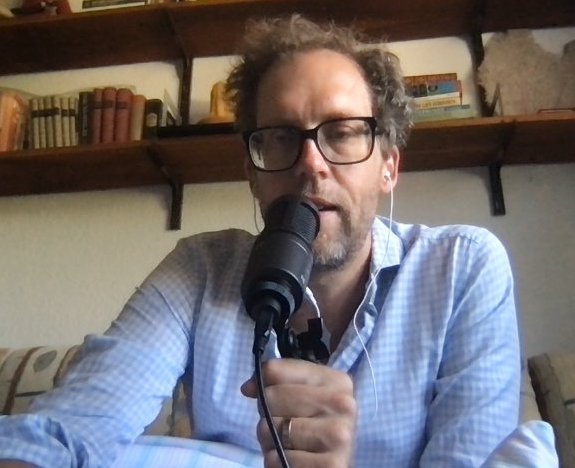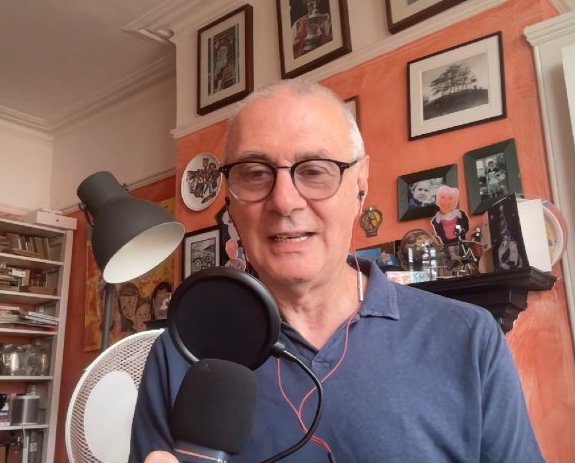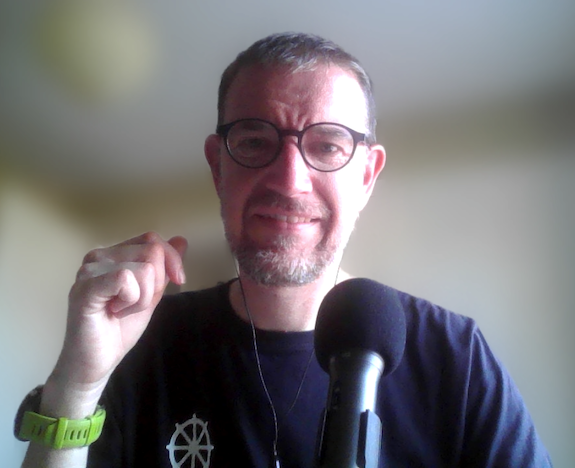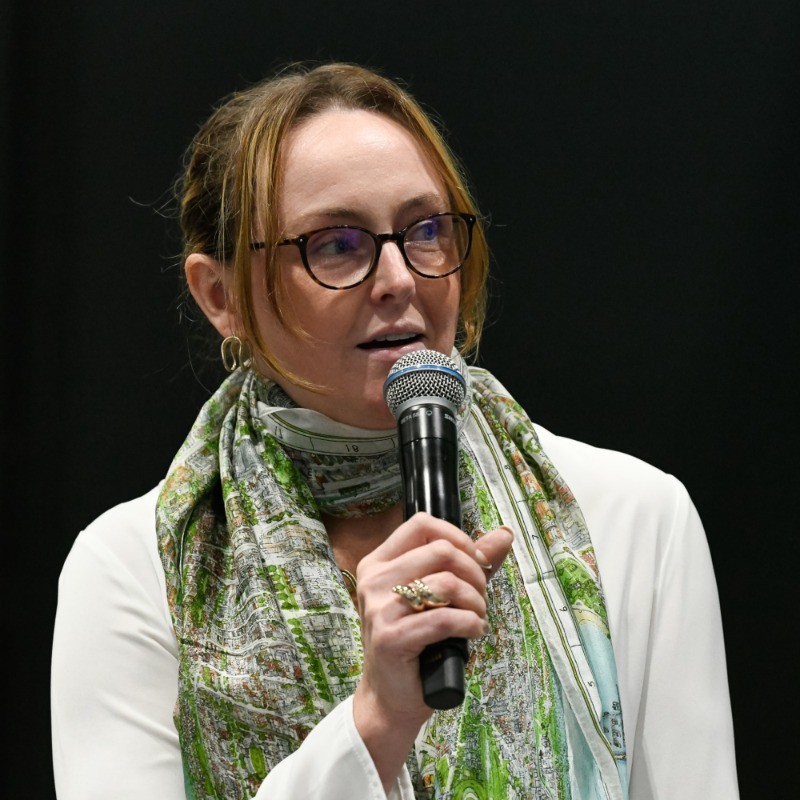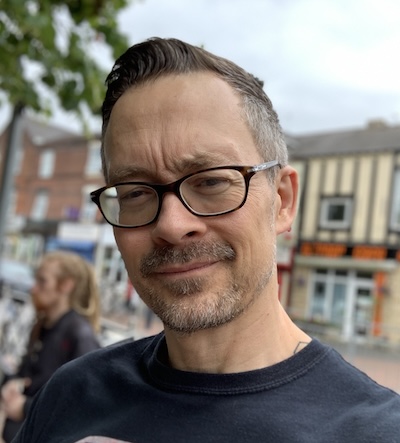Subscribe
Ed talks with Barcelona geo-legend Raf Roset. Raf, who has spent his career at
the Institut Cartogràfic i Geològic de Catalunya (ICGC), is a self-proclaimed "GeoCurrator", and puts out the daily "LinksGeo" digest to which I highly recommend you subscribe -
by email, or by following @LinksGeo on twitter. In this interview we discuss the Barcelona geo scene, the role of national mapping agencies like the ICGC in the modern age, and even Pokemon Go. Enjoy!
Relevant links:
About the podcast
On the Geomob podcast every week we discuss themes from the geo industry, interview Geomob speakers, and provide regular updates about our own projects.
Popular podcast topics:
The Geomob podcast is hosted by:
Autogenerated Transcript
Ed 00:01 Welcome to the geomob podcast where we discuss geoinnovation in any and all forms geared for fun or profit. Hi everyone. Welcome back to another episode of the Geomob podcast. Today I am delighted to have RAF rougher set, very well known figure here in the Barcelona GOC and to talk with me, Raf is at the ICGC, the Catalan national mapping agency here in Barcelona. But beyond just working there, he also organized as many other projects in the GOC and in the OSG a world. And he also runs a service called Lynx geo, which is a daily feed of two to three interesting geo links that we're going to talk about. And that is in many ways similar to geomob in terms of being a very diverse perspective on the geo world. So it's, Raf is great to have you here on the podcast. Maybe you can start off by introducing yourself a little bit.
Raf 00:52 Thank you so much. My name is Raphael. Uh, everyone knows me as rough, not like rough but rough RAF. I'm from Barcelona and uh, I've spent almost my working life at the ICGC, which is the mapping agency of Catalonia, a public mapping agency, and I'm really involved in some of the VR activities of VR or jr activities here in Barcelona in Catalonia.
Ed 01:19 All right, well first of all, prep. I want to thank you quite a lot cause you've been, you've been quite helpful in us getting geomob Barcelona, going, helping to recruit some of the speakers and encouraging people to attend. So I appreciate it a lot. Let's start with your links geo project, which hopefully I can get you to do a presentation about this at a GMO person at some point in the future. But basically it's a daily feed of interesting geo stuff that people can get by Twitter, by email on LinkedIn, on other platforms and every day it's just different stuff that has some kind of interesting geo aspect. And I've been a subscriber for quite a long time now and I love it because it just brings random cool geo stuff to me. Tell us about that project. Well, how long have you been doing that? What is the motivation? How do you do it? Give us the background.
Raf 01:59 Like 10 years ago in 2010, a group of local people in Barcelona, we organized the first for GE, 2010 in Barcelona, the Curry of that group, uh, we founded hyperlocal initiative inside of geo that we call Jaylene kids, which it can be roughly translated to English as geo gig. Those Gill geeks in Barcelona. We decided to run a monthly meeting much like your mom. And then, uh, because just right there, Twitter studied, I decided to go on and send most of the links and presenters and presentations of the people we met on those weekly meetings over over Twitter. That lasted full out like 10 years, no, eight years. And in 2018 I close the jail in kids account and then they opened the links, Gil account B. Cause I felt that, uh, speaking as gearing kids just wasn't right. If, because I mean I felt that I was a speaking for, for a bunch of people that not always shared my ideas of the need for those links, the most hardcore stuff. Although the most other less hardcore stuff, so I've been doing that for the last 10 years and I've sent other notes like young kids account when we closed that it had like 2000 tweets in it and the links gear account it has right now like 1600 links on that account and it's anything related to Gill sciences.
Ed 03:56 Then you do this every single day. I mean our five days a week at least. How do you have enough material? I mean where do you get the stuff from?
Raf 04:04 Hi. Yeah, except during weekends I sent like three links daily, Monday to Friday, not on weekends and that comes from reading a lot of searches. I still use a friendly R, S S rather, which is linked to a lot of gear or accounts all over the the wall in English, in French, in Italian, German, Spanish, and also Katelyn and that where the links come from and recently also the gearing queue, young kids links your account has been following lots of interesting people around cartographers my makers, people from GIS and from whatever machine learning sciences, anything that has the gear component, which is more and more pervasive and present in all of the earth sciences and the steam sciences.
Ed 05:05 Yeah. And the last couple of years, I mean the last 10 years there's been an explosion in cool visualizations and cool maps, old maps, interesting maps. There are all these different accounts that have, you know, people like looking at maps and it's really become kind of mainstream. How many people are subscribed now? How many people are getting your content because you have it across a bunch of different platforms. You'd be, people have email, Twitter, I see it on LinkedIn. Do you have any idea how many people are getting this content that you put out every day?
Raf 05:30 I don't have the precise numbers. There's like more than 100 people on master them and then like 300 people on Twitter, 20 some people that receive the daily email, the guest on MailChimp and like 200 250 people on LinkedIn. So roughly like 500 or 600 people reading VR with all things I sent you.
Ed 05:58 And is it, is it just one way, are you getting feedback like everyday, do some people write back to you and give you comments about the stuff or is it is kind of one direction?
Raf 06:07 It's more, it's more one direction. People, people don't get too involved in the geosciences, at least here in, in Barcelona. I know they ready and I know they use the term times but it's not, they really are that I get feedback or comments or anything on and it happens most on mostly on Twitter rather than lifting or masculine. So no, no, not really feedback on those. They are sending over suites, over email of the gearing kids least once to have, um, to open the possibility draft for discussion on the most pressing or heart issues of what was exposed on those links. But that really never happened.
Ed 06:54 Yeah, that's difficult. I mean that's kind of why, I mean at geomob that's why I try to have, we'd have not just the content but then we moved to the pub because that's where then people are in a more relaxed environment and the discussion actually happens. I find alcohol, alcohol helps
Raf 07:12 to supplement that discussion. That never happened on the lease. That does not happen at all on Twitter. That's why we um, we organized the geo cultural data. We had to learn typical beach and that's why the gen kids in Valencia, because the geeky initiative that we started, a jeering kit has a spread worldwide and there are -inaudible-. And then there's also a gear faring kiddos group in what was that urgent Tina and I think in Mexico also, so this, there's a lot of locally hyper-local initiatives that has taken the name from Jane gets related to Spanish, which is Jerry Herring ghettos. And we people in Valencia, they organize a, I think it's mid July, they're going to ask the,
Ed 08:07 yeah, I've seen that advertised.
Raf 08:11 It's, it's a bunch of interesting people in Valencia and there after we have the horizon via via the wine and everything. There's also nice discussion on geo, anything that happened. So happen in Valencia, Barcelona or all over. And then we have people from companies, private and public companies, freelance go. There's, we have all sorts of profiles devoted to geo sciences in business.
Ed 08:41 Hmm. Yeah. Well, I guess you've really got your finger on the pulse of the Catalan scene and also the greater Spanish scene. So tell us a little bit about the work you do at the ICGC and I mean, you've been there for a while, so how have things evolved over time and what kind of projects are you mainly focused on now?
Raf 08:57 Well, I started there, my, my background is on it and I started that the processing facilities when we had one of those, uh, digital equipment, VAX systems, um, from those 10 to now my production has changed a lot but still has a lot to be done to have both the precision that national mapping agency can provide to the -inaudible- and also the fast pace chain adaption. That project like open street maps half. So right now, I mean, one of group that was created, um, like five years ago that it's trying to innovate how we mapping agencies should the liver or provide or uh, spread data, not data but also product and services. So I don't like to call it innovation because everything's already invented, but we are on the edge of providing new ways to distribute cartography and map.
Ed 10:13 But also imagery. You guys do a lot with imagery as hold on you?
Raf 10:16 Oh yes. We, we have, uh, we do fly, uh, Catalonia and w we have like three planes at the ICGC. So we have our own imaginary along with imagine provided very commercial platforms and that we do also distribute it. But really imaginary is quite, quite simpler to distribute. It's, it's more easy, really. The sweet done vector tiles or or tiles coming from vector information.
Ed 10:45 How do you see the role of natural mapping agencies evolving? And this is a conversation, you know we've had several times over the years of like one thing that I see having run geomob now for over a decade in London, it seems like the national mapping agency data is of course fantastic, but more and more all the new projects are using open street map or let's say something like Google, which I guess relies on national, nothing big data but typically open street map because they, you know, it's so easy to get the data. It's one format for the whole world. And so I wonder does that diminish the role of national mapping and she, is that an opportunity? Is it a threat? How can those two worlds kind of coexist?
Raf 11:27 Well, Google certainly made an end on mapping agencies because they have a lot of muscle in terms of huge amount of money and a brilliant profiles working for them. But they don't have, they don't see their heart, Livy hyper-local information did. They don't really care about a police names or mold constructions and dwelling isolated in the middle of VR first. So Google their businesses. Another one, open street map opens in map. I think that's a good, a really good platform for collaboration and for having the most recent map done almost daily. They like the precision in open street map. They like the precision that our national mapping agency can provide because of the tools that we use and the professionals. We've been farming training for those many years. So the ideal platform would be a mix or a cross between the daily information updated on open street maps.
Raf 12:37 We'd be precision and craftsmanship and professionalism of the national mapping agencies. I don't think it's going to happen in the midterm or in the short term because national mapping agencies, they tend to aim to another target that's not citizens or people trying to use open street map instead of Google maps because they feel that an open and free project is better, but that's best suited for them to engage in. So it's kind of tricky right now, but more and more national mapping agencies see the need to collaborate with open street map or at least have an eye always on top of open street map and see whether community is going.
Ed 13:30 Hmm. Yeah. Well I know you, I remember we did, we had a state of the map Catalonia a couple of years ago and you were there as were many of your colleagues from, from the mapping and CSO. I mean I know you keep an eye on it. What are, what are some of the other more interesting projects or new technologies that you see coming? Cause I know you're also very active in kind of the software side of things on the Osco and what kind of things get you excited about the industry
Raf 13:54 right now? That brightest future. I see it in liberal learning and machine learning processes applied to imaginary. We've been trying to process of through a deep learning algorithm or our imaginary of the last year to seek through the automated process, uh, where the, where the most, the, the, the imagery, the first most from the uh, vector map that we constructed last year in terms of buildings for example, so that we can pinpoint which areas have really changed in the last year and start working on those precise Iris to update our map. And that's really, really interesting. It's tricky. It's difficult, there's a lot of options and you don't never get it really find a first try. So there's a lot to do on that field, which is really interesting. And then there's all a minor in terms of the target but not the word, the need, which is having that same distribution of imaginary and vector maps to phone any kind of phones and portable devices that, which is another, another league that national mapping agencies should be battling in.
Ed 15:24 Yeah. Well I know you guys made that hiking app, that lawn half hiking up. I forget the name of it now, but there's really cool, I mean it's really detailed. And anyone who goes hiking and is a great resource of whenever I go hiking,
Raf 15:37 there was an ease that was we saw that could be field with arc or tography because it is really detailed and has all those hiking trails and places and place names. So since we already had a product via one to 25,000 Mark and a one to 10,000 miles, we thought dad come pack Coke, compiling a version of Maydoff, mixing both escape, uh, scales and then converting that to vector tiles and compressing it, really compressing it to us more footprint file. We could find a way to deliver it, cross phones and work the VR offline market of hikers that could use them up on their phones without having a data connection because they just preloaded the 300 megabyte file that covered the whole Catalonia, that Heidi Eaton and it had worked. It really is working, it's now two years that we have updated the map. We are preparing a new version of that map, but it's, it's had a huge reception and hikers are really happy to have another tool to get on the field. And just I know walk around and see the VR data precisely. Drone high quality information that Vic is, you know.
Ed 17:10 Yeah. It's a, it's a great, it's a great app. I've used it myself. We're, we're fortunate that Caitlin is an area where there's a lot of good hiking. What are your impression as someone who's been involved in the GOC and here in Barcelona for a while and now as we've started geomob and things, what's your impression of how the tech scene is evolving and the implications for the geo community? Any, any thoughts on that and all the new startups that are coming and things like that?
Raf 17:34 Well, it's, it's really a reads really recheck our system. This more and more companies using the gear component in their businesses and more and more people the using maps without knowing where using maps. So it really the gear component, it's being more and more transparent to end users while it's being more and more valued business level for those all those companies. So I think we will see, we are already seeing a rise in the use of gear information. What we will see users of gear information in businesses and initiatives and startups that we can't really imagine right now. I've been a for for a while, I've been playing with Pokemon go, which is a phone where you have to,
Ed 18:32 yeah, of course. Of course. I didn't tag you as a folk Amman go play player rough I have to admit but all right, not a Harper
Raf 18:40 play Pokemon go. I just styled it and started playing because of the Yankee did a good job of integrating the base map for open street maps and using it as a navigation tool to uh, to go from one pocket game and poker stock to the next one. And most of the young players that have met here when I started playing D were not aware that they used them.
Ed 19:08 Yeah, I'm sorry.
Raf 19:09 When I asked them, you know what maps are, you use maps in your daily life. And they said, no, no catastrophe is something that my dad has in the, in the car. And that takes us from point a to point B, but I don't use math for me. They have no interest. And I said, well, you're playing Pokemon go, so you really know how to read a map. You're using one right now. And they went like, Oh yeah, that's right. You got me there. So, um, we'll see more and more things like that. People not being aware of a gear information in their lives and geo data being more and more.
Ed 19:48 I think you're right. It does become an invisible layer that's in, on top of every, every service. So, yeah. Alright. Raf, let's end with our traditional final question. What, what has been your favorite geomob talk that of all the talks that you've seen at the various events?
Raf 20:07 Oh, I've seen quite a few presentations and um, ah, they're really know the, the most, the one that I like the best is the, um, the maps into one initiative.
Ed 20:21 Alright, sure. Steven Feldman. Yeah. Yeah. He's a nice guy. He is. Well, he's
Raf 20:27 met last year in Barcelona and that initiative of Jake tracking all those maps sightings in the real world. That's something that I find it really nice. Really nice.
Ed 20:39 Well, I'm sure he'll be happy to hear that in some ways. Very similar to your links geo project in that you just kind of get interesting maps every day. Exactly. All right, well thanks a lot Raf. Thanks for taking the time to chat with us. And uh, as I said, thanks for all of your efforts for the geo community in Barcelona and for helping us get geomob going. And at some point we're going to get you to talk at, at a geomob Barcelona. So how can people get in touch with you if they want to talk with you about any of these topics?
Raf 21:08 My, my cards are detailed. They can find them in the league skill accounting to each of them. I'm on LinkedIn, they have my Gmail account is open to deliberations, news, anything. So feel free to keep in touch through mainly through things or.
Ed 21:26 All right, thanks a lot, Raf. Thanks for talking with us.
Raf 21:29 Well, you're more than welcome. Thanks man.
Ed 21:33 Thanks everyone for joining us today and listening to the GMO podcast. Hopefully you've enjoyed the discussion. Please don't hesitate if you have any feedback for us or any suggestions for topics that we should cover in the future. You can get the show notes over on the website, which is at -inaudible- dot com while you're there, if you're not yet on the mailing list, please do get on the mailing list where we once a month send out an email announcing future events, summarizing past events and just generally sharing events that you may find of interest. You can also of course follow us on Twitter, where our handle is geomob. You can follow Steven at Steven Feldman. You can follow me Freivogel. You can check out -inaudible- dot work and of course if you need any geocoding, please check out my service, which is open cage data.com. We look forward to you joining us again at a future episode or end of course seeing you at a future op event. Hope to see you there soon. Bye.
